CMCH Integrates Judaic-General Studies
A progressive, project-based learning experience shows how CMCH middle school is stretching during the pandemic.
It was 11 a.m. on a Tuesday morning last month, and Matan Fleishman was sitting in his sixth grade classroom at CMCH Elementary & Middle School, thoughtfully tapping his pencil to his chin.
In three days, he would need to submit the position paper he’s worked on to a rabbinic council of teachers and rabbis for review. At that moment, however, he was not in class with his Judaics teacher, Rabbi Mendel Jacobson, but with Wes Morris, who runs the middle school’s English Language Arts program.
“Rabbi Jacobson and I both come from a Montessori background and were looking for ways to integrate the Judaic and General Studies sides of the curriculum,” Morris said. “We decided to come up with hot topics in the Jewish world; he would guide them in researching their assigned topics, and I would support them in writing their papers and preparing for a debate.”
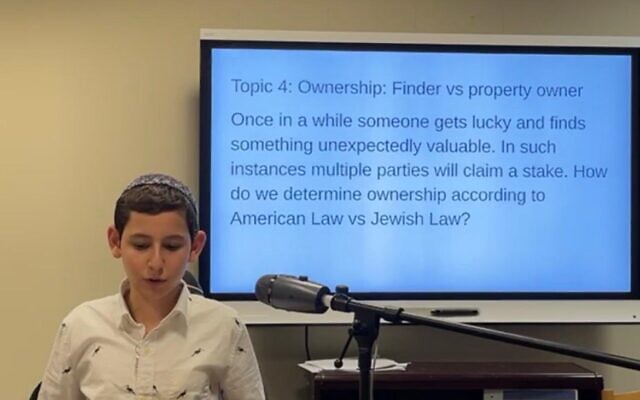
The project they came up with is a challenging but fascinating one. The boys were divided into groups and assigned a debate based on real life situations and recent events. Two scenarios were: whether Nintendo should be held liable for trespassing and damages caused by Pokemon players; and whether autonomous vehicles, in the event of a collision, should be programmed to save the passengers or the pedestrian. Each group was further split into two pairs and instructed to research one of two opposing positions and create arguments based on halacha and other scholarly works.
Some students used online search engines to aid in their research; others, like Matan, preferred to go straight to the source.
“Rabbi Jacobson gave me some guidance on where to start looking,” Matan shared. “Then I opened the Gemara (Talmud) and Shulchan Aruch (Code of Jewish Law) and found the sources that would back my position.”
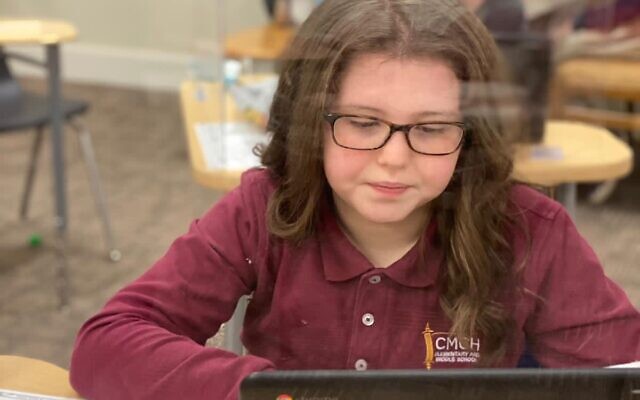
On this particular Tuesday, the students were editing their position papers, which were previously submitted, reviewed and returned to them. Two weeks later, they’d be arguing in a debate that would be streamed live for the parents, grandparents and school community to enjoy. The boys were nervous about what to expect, yet they seemed confident that they could hold their own and argue their positions convincingly.
Unlike previous years, when seats were grouped together to optimize collaborative learning, the students sat 6 feet apart, in desks surrounded by plexiglass.This didn’t seem to faze them as they eagerly exchanged ideas about debate strategy and pondered aloud what kind of questions might be thrown at them by moderator Rabbi Yossi New, senior rabbi of Congregation Beth Tefillah and executive director of Chabad of Georgia.
If you were to walk through the hallways and peek into other classrooms, you would notice a similar sight. The setup of each room prioritizes COVID safety. Class discussions flow freely, and students are engaged in various learning activities assigned to them.
Back in the ELA room, Matan shared that the skills he is picking up through this assignment extend far beyond academics. “I learned how to write a paper, find information and draw people in, but this project also prepares us for the real world. In life, people will say things against you, and you can’t just respond by saying they’re wrong; you have to give evidence and say, ‘That isn’t right, and this is why.’”
As it turns out, this kind of practical application is exactly what the teachers had in mind when they initiated this project. In fact, it’s what drives most of their innovative lesson planning.
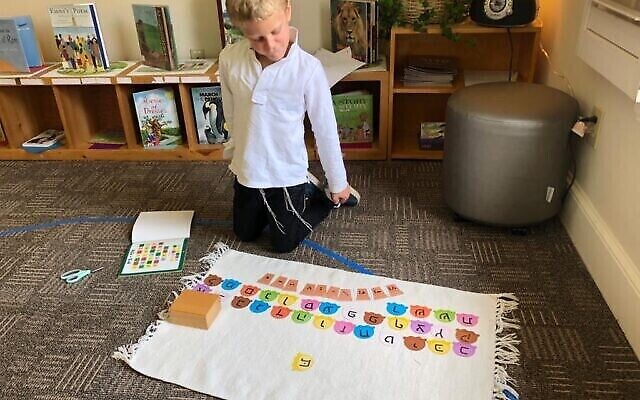
“Our teachers challenge themselves daily to find meaningful ways to improve student engagement,” said Leah Sollish, the Judaic principal who was the driving force behind this project.
Pushing the limits comes naturally to this crew. Back in March, as most schools were slowly coming to terms with the new COVID-19 reality, it took only one day for CMCH to move all classes online. It was a mammoth effort, but in short order the students were learning and engaging socially in their new virtual classroom.
Now the school has opened for in person learning.
Registration is climbing steadily, and the office is fielding almost daily phone calls from parents around the city and out of state interested in enrolling their children in the school. Most notably, an additional first grade class opened Jan. 4 and all but two spots have already been filled.
“People see a school that is open at a time when many are struggling to operate, and we are not only surviving, we are thriving!” said Elaine Padron, who oversees the General Studies Department.
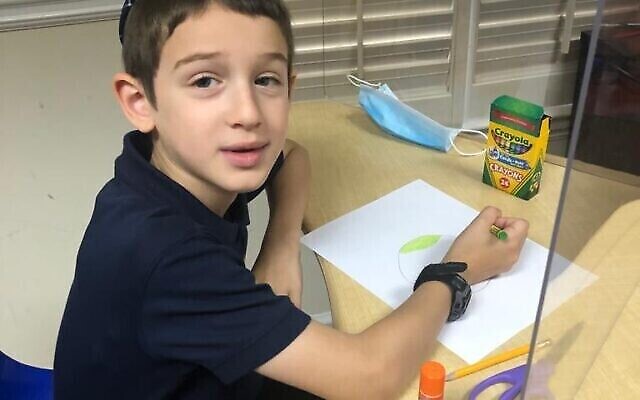
Rabbi Isser New, who serves as the school’s executive director, agreed.
“Over the past two years, I have watched our principals weave together a multi-faceted curriculum that encompasses Judaic studies, general studies, development of character and social-emotional growth,” Rabbi New said. “The Rabbinic Debates project is a result of that integration.”
As for Matan Fleishman, he is back at work researching his topic and honing his arguments. The debate date is getting closer, and this future leader needs to be prepared.
Bracha Slavaticki is a CMCH parent and co-director of Chabad of Decatur.



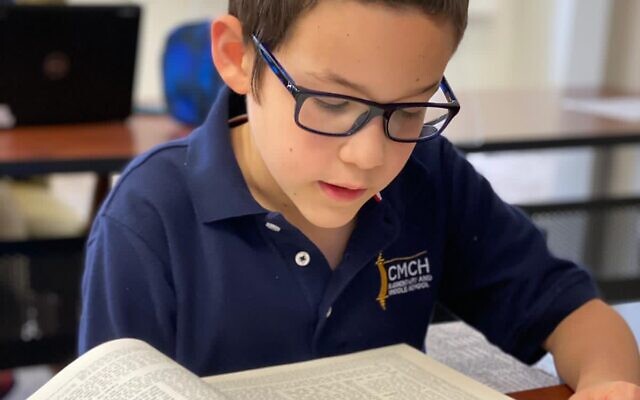
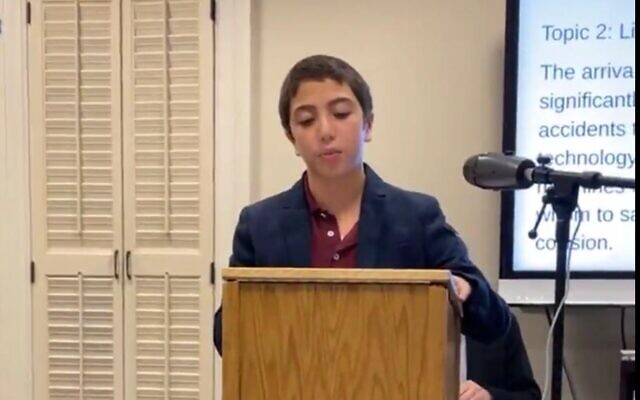
comments